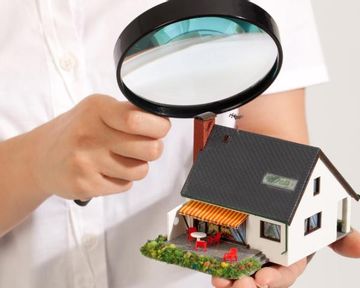The art of pricing your home to sell
Setting the right asking price for your home is a critical decision that can significantly impact your selling experience. It's not just about picking a number; it's about understanding market dynamics, buyer psychology, and the value of your property. Let's debunk some common myths surrounding asking prices and explore how to set a price that attracts buyers and leads to a successful sale.
The Challenge of Setting an Asking Price
For sellers, setting an asking price for a home they've lived in for a long time can be challenging. Emotional attachment, coupled with the myth that listing at a slightly higher price is beneficial, often leads to properties staying on the market longer than they should at inflated prices. This can be especially true when other homes in the same area offer similar features at market-related prices.
Inflated prices can have the opposite effect, scaring off potential buyers initially due to the high price. Later, when the price is dropped, potential buyers may wonder why the property hasn't sold yet. A property that lingers on the market for longer than average can develop a negative association, eventually selling for below its actual value.
Understanding Market Dynamics
To set the right asking price, sellers must understand how a property's value is determined. Market conditions play a vital role, along with what buyers are willing to pay. Factors such as location, the strength of the local market, property type, demand, and access to amenities all influence a property's value. The more sought-after the area, the higher the value of the property.
One effective way to determine a property's value is to consult with a reputable real estate agent specializing in the area. They can provide a record of recent sales of similar properties in the last three to six months, helping sellers gauge the market value.
Debunking Common Myths
- Sellers set their own asking price - While sellers may have a desired price, other factors such as location, size, condition, and market conditions influence the final asking price. Working with a knowledgeable property professional can help determine a competitive price that attracts buyers.
- You can use property portals to determine the asking price - While property portals provide a general idea of the market, setting your asking price solely based on this information is not advised. Factors such as property condition, recent sales, and market trends need to be considered. A comparative market analysis (CMA) from a local professional can provide a more accurate valuation.
- Renovations guarantee increased home value - While renovations can enhance your property's appeal, not all improvements guarantee a significant increase in value. Understanding which renovations will yield the best return on investment is crucial. Consulting with a property professional can help prioritize renovations that maximize resale value.
Determining If Your Home Is Overpriced
If your property is not generating interest or offers, it may be overpriced. Signs of an overpriced property include pricing well above neighbouring properties, low buyer interest, and offers consistently below the asking price.
What to Do If Your Home Is Overpriced
If you find your home is overpriced, consider these steps:
-
Plan a fresh start: Take down your old listing, spruce up your property, and take fresh photos. This can give your listing a new lease on life and attract more interest from potential buyers.
-
Don't make the same mistake twice: Get a revised set of valuations from multiple agents. Ensure your agent can justify their valuations with a comparative market report, highlighting recent sales and trends in your area.
-
Be transparent with buyers: If you attract buyers who previously avoided your property due to its price, be upfront about the reduction. Provide copies of approved plans, defect lists, and professional home inspection reports to reassure buyers.
Setting the right asking price for your home requires careful consideration of various factors. By understanding market dynamics, debunking common myths, and working with real estate professionals, you can ensure your property is priced competitively, attracting the right buyers and leading to a successful sale.

